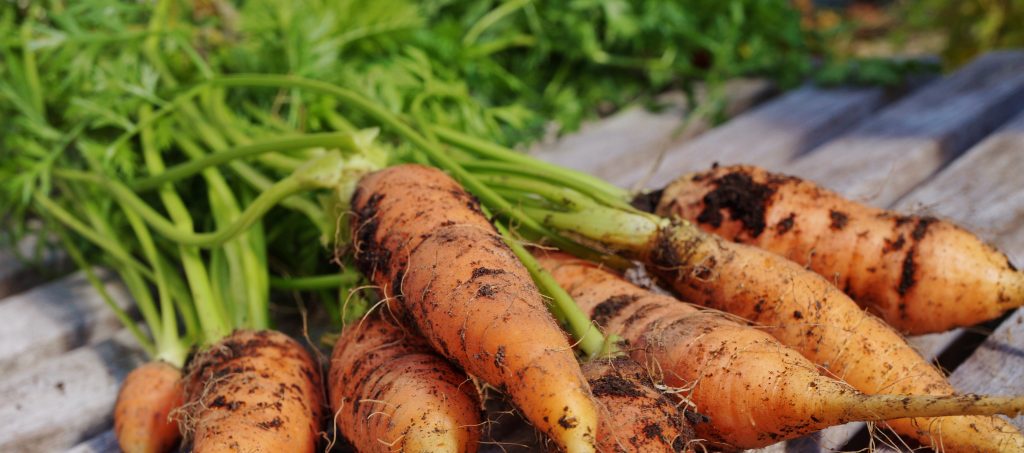Are We Malnourished?
June 22, 2017 | by kateb | 0 comments
So in the past week I've been adding a bit of zinc into our tanks! It's actually made a noticeable difference.
Like many nutrients, Zinc is one that our bodies uses a lot and one we can quickly become deficient in.
I was going to share a bit about it, but got distracted thinking about nutrients generally. The more I thought about them and how much they form the basis of our well-being and how vital they are, the more I realised... we're malnourished! Especially our children.
In this post I share WHY this is so and why nutrients are a panacea for modern day illness.
I know we have an abundance of food. ‘Malnourishment is just not possible’, you might be saying. However, before dismissing this... listen in, as it just might be a panacea to safeguarding your longevity and future wellbeing.
Malnutrition in the pure sense is a lack of proper nutrition. It’s a term commonly associated with poverty and lower socioeconomic groups, not a condition for those of us living a modern, western way of life.
So let’s understand why, in western societies where food is abundant, we could be malnourished and thereby unknowingly setting the scene for chronic illness and disease.
There are 3 causes of malnutrition;
- not having enough to eat,
- not eating enough of the right things OR
- being unable to absorb the food that we eat.
And there is a fourth cause… disappearing nutrients.
For most of us we're fortunate to access an abundance of food, so number one isn’t one of the causes in this instance.
It’s the other causes that are silently affecting us...

How can this be? Firstly, lets remember what nutrients do.
A nutrient is a substance that provides nourishment essential for maintaining life. They are the basic, raw materials that build the strong foundation of a healthy and vital body. Understanding these things and dealing with them is a cornerstone of my work, in tandem with detoxification and managing stress / emotional health.
If we’re deficient in any of the many, many raw materials e.g. zinc, magnesium, copper, selenium, b vitamins, vitamin c or d etc… then our bodies are left vulnerable to dis-function and dis-ease. Many diseases are escalating not diminishing e.g. autoimmunity, digestive issues, mental illness and chronic illnesses such as diabetes and cancer. Could it relate to a basic nutrient deficiency i.e. malnutrition?
It’s a big question and a big topic that can’t be fully answered here OR I’m not sure we can ever fully answer. But we can reflect on our history and some ideas about the causes of malnutrition.
- We haven’t been eating the right food.
You’ve heard it before, but perhaps not in this context.
My clients come to me making healthy choices, but they can’t resolve certain conditions or they might just want to make sure they’re ‘doing it right. After a couple of sessions, one of the most common comments I get, usually from those that are the healthiest, is ‘ … and I thought I was healthy?!’.
Which is absolutely okay, our wellbeing is an ongoing journey of learning, of personal growth, development and evolution.
We are healthy based on the knowledge that we have. However - is that knowledge and the choices we’re making, giving us the basic raw materials (the nutrients) our cells MUST have for communication, function and a well-being?
Let’s get back to food. Some examples…
Misleading information.
For over 50 years we were lead to believe that a diet heavily loaded with carbohydrate (a non essential nutrient, manufactured in the body) and lean on fats, (an essential nutrient, needed from our diet, and important for absorbing some nutrients) was the way to eat!
It was misleading and damaging to our health with an incorrect balance of macronutrients being eaten, leaving us unsatiated and undernourished. Sadly the only thing that got healthy from this belief was the bottom line of some BIG corporations making dodgy low fat and high sugar ‘food’. Check out my previous post, ‘Breakfast. The food that makes billions’.
I too grew up on cornflakes and sugar, followed by toast and a good spread of soft margarine. At the time we did what we thought to be right and ‘healthy’.
‘When we know better we do better’ ~ Maya Angelou
This way of eating has left a whole generation depleted in key nutrients. Then, unknowingly, passing a weakened genetic inheritance onto the next generation.
(Note each generation is also unknowingly inheriting a toxic load accumulating from one generation to the next, which also plays a big part in weakening our genetic makeup, more info. below and here)
As examples of other dietary choices that are unknowingly depleting our nutrients, let’s look at phytic acid and food diversity.
Phytic Acid.
Unless properly prepared, nuts, seeds, pulses and grains i.e. cereals (all the foods at the bottom of our standard American and Australian food pyramids), deplete us nutritionally.
Here’s why. These foods come neatly packaged up with phytic acid.
Phytic acid is stored in the hulls of nuts, seeds, pulses and grains. However… it has a strong binding affinity to important minerals, such as calcium, iron, and zinc.
The problem arises when we consume large amounts of these foods (as we’ve generally done for the past 50 years) and the phytic acid bind to those important minerals within us, it depletes our bodies of calcium, iron, zinc etc. thereby compromising the systems that rely on these raw materials e.g. our immunity, blood, bone health and much more.
Note that when nuts, seeds and grains are soaked, activated and / or sprouted it helps release the phytic acid, making them kinder on our digestion and mineral stores. It’s the way our ancestors prepared these foods thousands of years ago when they began to consume them more frequently.
Diversity.
Our microbiome (natural bugs that live with us symbiotically) need food diversity to create their own diversity and therefore our wellbeing.
Diversity not only within their own kind, but diversity in the food we feed them. It is vital. I heard once that as we evolved, in a single day we ate up to 100 different types of plant species i.e. leaves, tubers and grasses! This diversity not only gave us diversity in taste and flavour, it gave diversity in our microbiome (bugs). Our bugs are instrumental in helping us digest and absorb our food. Thinking about it – not washing food was beneficial back then – perhaps a topic for another time.
Compare this to our modern day lives, where the diversity of foods we eat in a single day has become very narrow and very sanitised.
The plethora of ‘wild’ bugs and nutrients we require and were historically exposed to a thousand years ago (and for a hundred thousand years before that) is dramatically reduced.
The next cause of our modern day malnutrition is how we are absorbing food / nutrients?
We may have the best ‘diet’ in the world, but relatively speaking it’s limited … and it doesn’t help us if we aren’t absorbing it.

- What causes mal-absorption?
There are many different factors. Below are a couple of common ones.
Heavy metals and toxins.
Most of us have heavy metals stored away in our cells. It’s not IF we have them it’s a matter of how much we have and IF we are detoxing them?
Metals such as mercury are ‘opportunistic’ in that they will jump into a cell receptor site in place of important minerals e.g. very simply, mercury can jump in and push zinc out.
Heavy metals and toxins can hamper absorption of nutrients and effect organ health, especially the liver, again leaving us nutritionally depleted.
Imbalanced Microbiome.
This is one of the most important reasons for nutrient mal-absorption.
When our microbiome i.e. the population of bugs that live symbiotically on and within us, is out of balance, we don’t absorb nutrients efficiently.
Our bugs help us metabolise our food e.g. some species help produce vitamin B12 in the small intestine, B12 is vital for healthy nerves (ie stress management and brain function) and blood cells. Then if we have disbyosis, i.e. a greater population of pathogenic bugs these too can rob us of vital nutrients.
- Another Cause. Disappearing nutrients.
This is an evolutionary cause that’s not in the standard definition of malnutrition, yet it’s significant.
Humans evolved drinking fresh water from natural, mineralised streams and eating food from nutrient rich soils and oceans. Good quality nutrients were readily available, helping us evolve as one of the most successful species on the planet. This is no longer the case.
Our soils are drastically depleted with very few minerals left, particularly in Western Australia. The food we eat is nutrient depleted. Plus most of us drink chemically treated water that has barely, if any, nutrients.
Although our oceans are still one of the few places with good mineral stores (notwithstanding the polution), we are a long way from the naturally mineralised streams, water holes or nutrient rich soils we would have enjoyed and evolved with.
We can see how unknowingly, physically and genetically weaker frames can be inherited from one generation to the next, as we are nutrient depleted.
Other factors causing a lack of nutrients include our emotional wellbeing and stress levels. Two factors that if left unmanaged also quickly deplete key nutrients. Read more about managing stress here and here.
So how do we know if we’re malnourished i.e. nutrient deficient?
There are many, many different symptoms that indicate nutritional deficiencies, for example;
- pallor (pale skin)
- fatigue
- weakness
- trouble breathing
- unusual food cravings
- hair loss
- brittle nails and/or ridges in nails
- teeth prone to cavities
- periods of lightheadedness
- constipation or irritable bowel
- fatigue
- heart palpitations
- feeling faint or fainting
- depression
- tingling and numbness of the joints
- menstrual issues (such as missed periods or very heavy cycles)
- poor concentration
- and more…
Some great Nutrient Rich Foods we can be adding in;
- Seaweeds
- Organ meat
- Himalayan or celtic sea salt
- Garlic
- Sardines
- Eggs
- Chia seeds
- Aloe vera
- Fruit and vegetables with the skin left on
- Green smoothies and juices
- Bone broth
And a colloidal mineral supplement if need be.
Adopting a diet full of a diverse range of organic, whole foods rather than processed, refined and packaged foods is a big step in the right (nutrient) direction.
Testing.
- Hair tissue analysis can help in identifying a nutritional profile and heavy metal toxicity.
- Stool analysis can help identify microbial imbalance in the gut.
- First and foremost consult with your health practitioner.
The topic of nutrition is huge and complex. I’ve skimmed across the surface and tried to simplify it as much as possible. I hope it’s introduced you to a concept or reminded you of the vital importance of good nutrition. It is the first step in a healing or wellness journey.
In summary
- When we consider our wellbeing we must consider nutrients, the basic, raw materials of our cellular function and communication.
- It’s the quality of the nutrients we are eating and HOW we are absorbing them that matters.
- Consuming organic, nutrient rich foods the body can use to thrive on for wellbeing and disease prevention.
- Find out if you’re actually absorbing these wonderful foods and your body is accessing them or not?
Replenishing our bodies with deep nutrition helps build and maintain strong, healthy, disease and symptom free minds and bodies.
In affect, it is a panacea. Now I'd love to hear from you. What are your thoughts?
If you want to ensure you or your family are enjoying foods that really are healthy and nourish your body deeply, contact me for a free consultation here or book in for one of my programs here. I’d love to give you the guidance you’re looking for, simply.
This information is based on my scientific training, research, personal experience with healing myself and my immediate family and personal conclusions. I continue to learn while working with different health professionals and coaches to ensure our families wellbeing and harmony. It takes knowledge and it takes a team.
Always consider the reliability of where your knowledge is coming from and who’s on your team.


